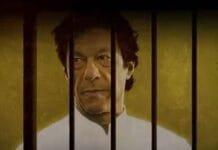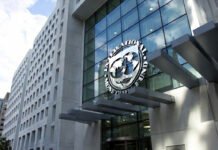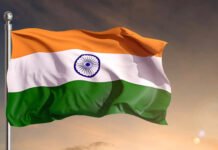INVC NEWS
Washington : Uncover the complex political crisis in Pakistan and why timely elections are crucial. Delve into the America – Pakistan diplomatic discussions that shed light on the path to a stronger, democratic nation .
The Crucial Importance of Timely, Free, and Fair Elections in Pakistan: A Diplomatic Perspective
In the heart of South Asia, Pakistan stands as a nation of immense geopolitical significance. Its political landscape, however, has been tumultuous for more than a year, casting a shadow of uncertainty over its future. The center of this political whirlwind is none other than former Prime Minister Imran Khan, who was ousted in a parliamentary no-confidence vote last year. This development has triggered a cascade of events that has captured the attention of not just Pakistanis but also the international community, especially the United States.
Diplomatic Discourse: The United States’ Standpoint
The US State Department has been closely monitoring the situation in Pakistan, recognizing the urgency of stabilizing the nation’s political climate. Senior US diplomat Victoria Nuland recently engaged in a crucial conversation with Pakistani Foreign Minister Jalil Abbas Jilani. Their dialogue revolved around a pivotal theme that resonates deeply with Pakistan’s present and future – the importance of timely, free, and fair elections.
In their conversation, Acting Deputy Secretary Nuland and Foreign Minister Jilani emphasized the critical nature of conducting elections in strict accordance with Pakistan’s laws and constitution. It is essential to underline that these elections are not just a mere administrative formality but rather a cornerstone of Pakistan’s democratic foundation. The United States firmly believes in the principles of democracy and the right of every Pakistani citizen to have their voice heard through these elections.
The Crisis in Pakistani Politics
To understand the urgency of holding timely, free, and fair elections, it is essential to delve into the crisis that has gripped Pakistani politics. Imran Khan’s ouster from power has not only sent shockwaves across the nation but also fueled a fire of discontent. Khan himself has pointed fingers at both the United States and Pakistan’s military establishment as the architects of his downfall, although these claims have been vehemently denied by both Washington and the military.
The State Department’s statement on the conversation between Nuland and Jilani did not specifically mention Imran Khan, but the implications of this dialogue are significant. It signals the United States’ commitment to ensuring that Pakistan navigates through these turbulent waters and emerges stronger on the other side.
The Interim Government’s Role
In mid-August, Pakistan swore in a caretaker cabinet under the leadership of interim Prime Minister Anwar-ul-Haq Kakar. This transitional government is tasked with managing the country until new elections can be held. However, the timeline for these elections remains uncertain, as constituency boundaries are currently being redrawn.
One of the primary objectives of the caretaker cabinet is to guide Pakistan towards economic stabilization. The country’s $350 billion economy is treading a narrow path to recovery, with the recent approval of a $3 billion bailout deal from the International Monetary Fund (IMF) playing a pivotal role in averting a sovereign debt default.
The IMF’s assistance underscores the international community’s vested interest in Pakistan’s stability and prosperity. Timely, free, and fair elections are not just a matter of national importance; they are also a critical factor in attracting foreign investment and fostering economic growth.
Conclusion
In conclusion, the importance of holding timely, free, and fair elections in Pakistan cannot be overstated. It is not merely a matter of political procedure but a fundamental aspect of preserving democracy and ensuring the nation’s stability and growth. The recent dialogue between US diplomat Victoria Nuland and Pakistani Foreign Minister Jalil Abbas Jilani highlights the international community’s concern for Pakistan’s future.
As the nation grapples with political uncertainty and economic challenges, the world watches closely. Pakistan’s path forward lies in the hands of its leaders and its people, who must come together to uphold the principles of democracy and secure a brighter future for the nation.
















They had a democracy. They elected Imran Khan, who was then ousted non-democratically by the US.